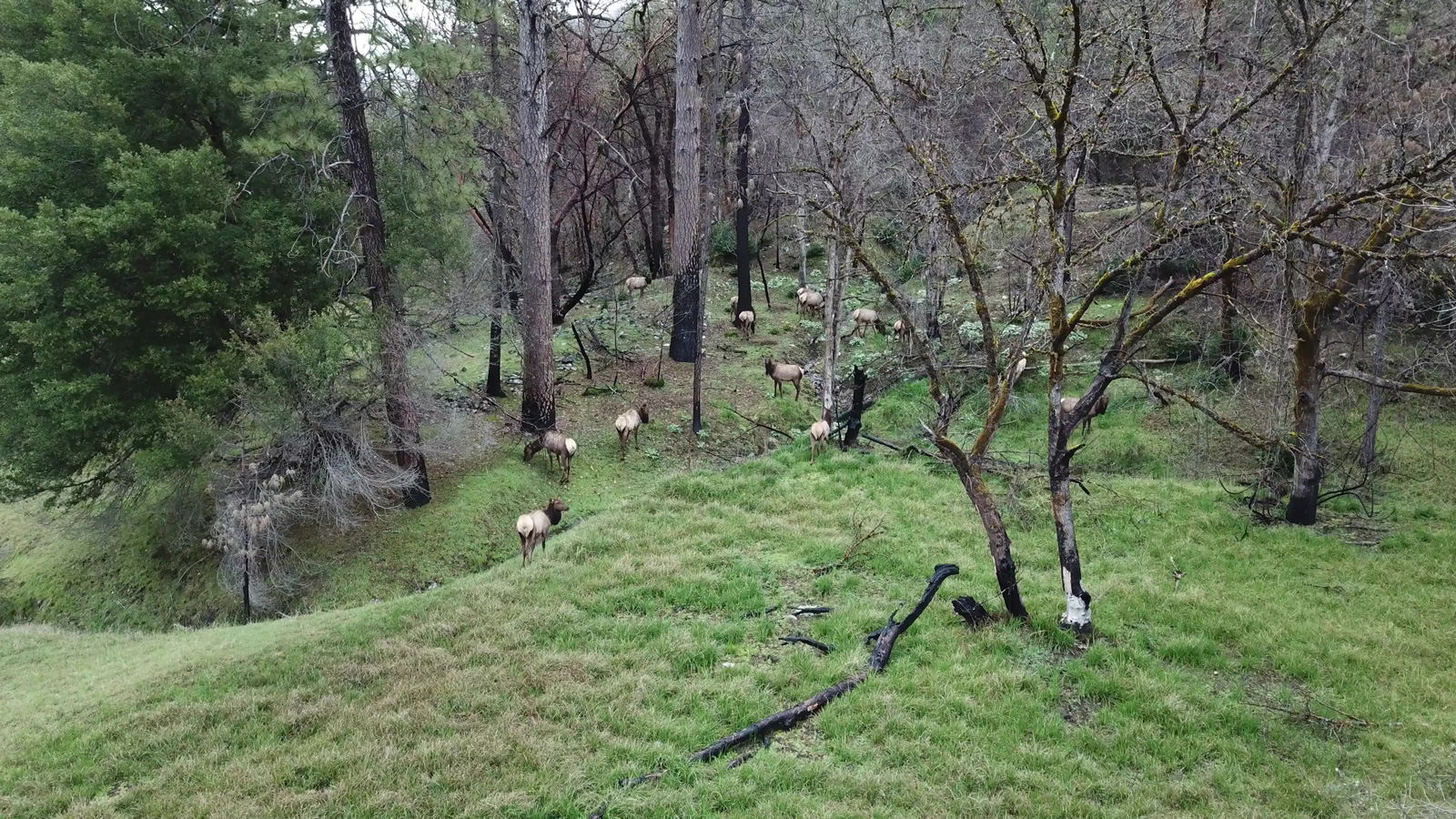
<p>By combining contemporary fuel reduction burns with the spreading broadcast burns used for generations by the Karuk Tribe, the authors were able to generate the largest positive effect within elk habitat (pictured). </p>
New research on the Traditional Ecological Knowledge (TEK) employed by Karuk Tribal members found that cultural burning, prescribed fire, and forest management principles positively benefit the restoration of elk habitat in northern California.
Published in the Journal of Applied Ecology by Department of Environmental Science, Policy, and Management (ESPM) researchers from the Karuk-UC Berkeley Collaborative, a partnership between Rausser College and the Karuk Department of Natural Resources, the findings illustrate the long-term habitat restoration benefits of the generational land management practices.
According to lead author Thomas Connor, a postdoctoral researcher in the lab of Professor Justin Brashares, prescribed burns that more closely matched those used traditionally by the Karuk Tribe—low intensity, spreading broadcast burns conducted repeatedly over multiple years—had significant positive effects on elk habitat. Conversely, isolated prescribed burns that focused only on reducing fuel loads had a negative impact.
But, by combining contemporary fuel reduction burns with the spreading broadcast burns used for generations by the Karuk Tribe, the authors were able to generate the largest positive effect within the elk habitat.
Connor said the study demonstrates the importance of integrating indigenous TEK into managing wildfire risk and wildlife habitat and presents a path forward for new efforts to do so.
Brashares; Daniel Sarna-Wojcicki, a project scientist in ESPM; and Luke Macaulay, a cooperative extension specialist, also contributed to the study.
A full copy of the study is available online.
